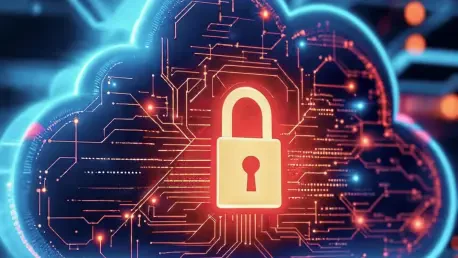In the realm of enterprise SaaS technology and software architecture, Vijay Raina stands out as a guiding figure. With a wealth of experience in software design and a deep understanding of cybersecurity, Vijay brings unparalleled insights into the evolving landscape of cybersecurity practices and compliance. Today, we delve into the expanded scope of Singapore’s cyber-related trust marks, exploring their impact and value.
Can you describe the benefits Ascent Solutions experienced after obtaining the Cyber Trust mark in 2022?
The Cyber Trust mark undeniably provided numerous advantages for Ascent Solutions. We saw immediate improvements in our ability to participate in tenders with much less resistance. The mark opened doors to larger project tenders that might otherwise have been out of reach. It also strengthened our relationships with partner companies by providing assurance and credibility. Displaying the mark on our website added a layer of trust for prospective clients, reinforcing their confidence in our cybersecurity measures.
Why did you decide to reapply for the Cyber Trust mark despite the lack of subsidy this time?
The decision to reapply stemmed from the substantial value the mark had already brought to our business. Although the reapplication process is expected to cost around $10,000, we believe the premium it offers—particularly in enhancing our marketability and credibility—far outweighs the expense. The confidence and trust it garners from our partners and clients are crucial in maintaining and expanding our business opportunities.
How do the enhanced Cyber Trust mark and Cyber Essentials certification differ from the previous versions?
The enhancements to the Cyber Trust mark and Cyber Essentials certification are quite significant. The updated versions now encompass new areas such as cloud security, artificial intelligence, and operational technology used in manufacturing. These additions are essential in addressing the evolving risks associated with digitalization, such as attacks on cloud services and vulnerabilities within operational tech environments. This comprehensive coverage makes the certifications more robust and relevant to current cybersecurity challenges.
How do the enhancements help companies prepare for risks associated with digitalization?
These enhanced certifications help companies by providing specific measures to mitigate cyber-attacks related to digitalization. They address risks like unauthorized AI usage—often termed as shadow AI—and potential weaknesses in older manufacturing devices or within the supply chain. These updates ensure that companies are not only meeting basic cybersecurity standards but are also prepared for more sophisticated and emerging threats.
Can you elaborate on the importance of the Cyber Essentials certification for SMEs in Singapore?
The Cyber Essentials certification is particularly crucial for SMEs, given their significant presence in Singapore’s economy. More than 500 businesses have obtained at least this basic level of certification, which is a testament to its importance. SMEs often face resource constraints and cybersecurity can be a daunting challenge. The certification provides a practical framework to defend against common cyber threats, thus enabling these businesses to protect their data and operations effectively.
What are the responsibilities of businesses when it comes to securing their cloud usage?
Businesses must recognize that cloud security is a shared responsibility. Relying solely on cloud service providers is insufficient. Companies need to implement their own security measures and can leverage the guidance provided in Cyber Essentials or Cyber Trust. This includes ensuring proper configuration, access controls, and continuous monitoring of their cloud environments to mitigate risks effectively.
Can you explain the significance of internationally adopting the Cyber Trust and Cyber Essentials marks?
International adoption of these marks is a significant development as it extends the credibility and standards of Singapore-based certifications beyond national borders. Regions such as Malaysia, Thailand, the Philippines, and the Middle East have started incorporating these marks. This not only raises the cybersecurity bar globally but also supports Singaporean firms in gaining a competitive edge in international markets by showcasing their commitment to stringent cybersecurity practices.
What are the potential implications of making certification mandatory for vendors with access to sensitive data or government systems?
Making certification mandatory would significantly impact vendors such as penetration testing firms and cybersecurity auditors, ensuring a consistently high level of security across all involved parties. This move could enforce stricter compliance and potentially reduce the risk of data breaches within sensitive environments. While it may pose initial challenges, the long-term benefits of robust security and trust can be substantial.
How do you perceive the readiness and willingness of SMEs to adopt these cybersecurity certifications?
The readiness and willingness vary among SMEs. Many face challenges such as rising costs and the pressure to prioritize revenue-generating activities over compliance. However, those who understand the long-term benefits of strong cybersecurity are more inclined to adopt these certifications. Over time, as awareness and the perceived value of these certifications grow, more SMEs are likely to embrace them.
Do you have any advice for our readers?
My advice would be to view cybersecurity as a fundamental aspect of business strategy rather than a mere compliance requirement. With the increasing sophistication of cyber threats, investing in robust cybersecurity measures is crucial for protecting your business’s assets and reputation. Staying informed and proactive can make a significant difference in navigating the digital landscape securely.









